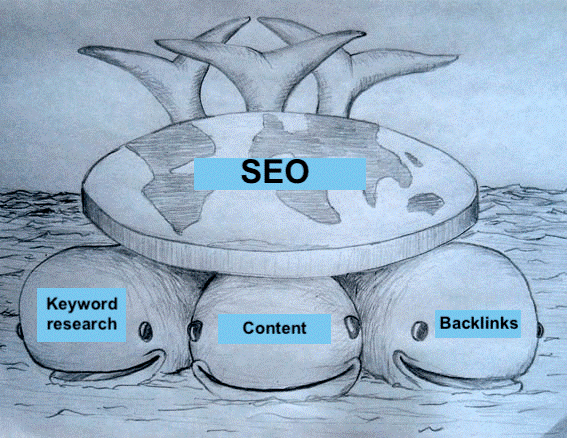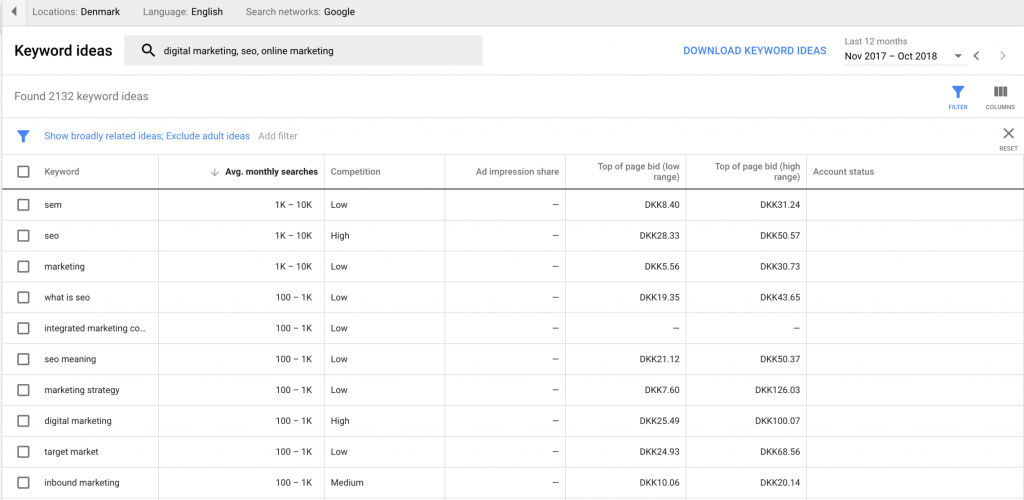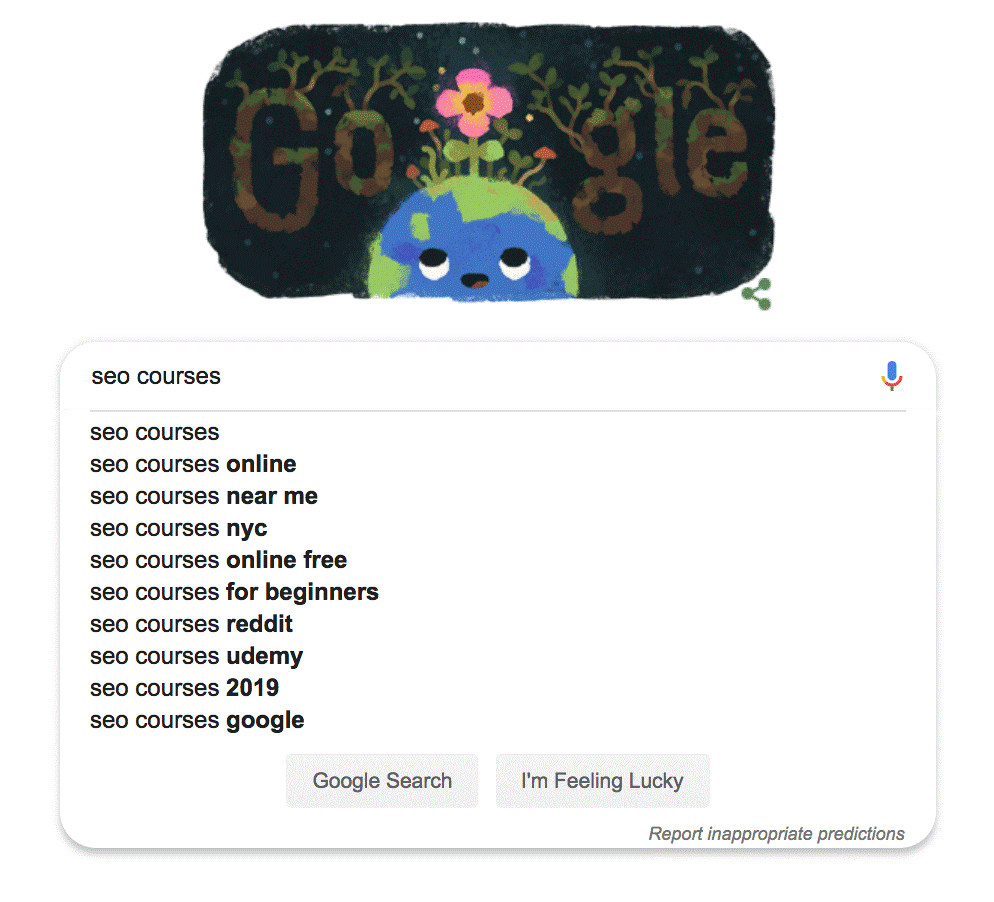Beginners guide to SEO
In this article our guest blogger, Andrii Gor looks at SEO and its relevance as part of his beginners guide to SEO.
What is SEO?
In simple terms, SEO – Search Engine Optimization – optimizing your content for ranking better in search engines.
There is also, this fancier explanation by Glen Allsopp: “[It’s] part reverse‐engineering algorithms and part reverse‐engineering human nature. It’s about using logic and “gut” to do what you think should matter, and then relying on data to correct yourself due‐course.”
Nowadays, Google is dominating Search Engines market, therefore it is mostly about “how to optimize your site in Google?” So, in my beginner’s guide to SEO, I will focus mostly on that.
Of course, there are some SEO tips, related to Bing, Yahoo and Yandex as well, but their share in search is pretty small.
Does SEO still matter?
The next question is: does SEO still matter?
It is often referred by many marketeers as an “old-school” technique from 2000s, which doesn’t bring any tangible results anymore and is super competitive.
They recommend focusing on Facebook advertising, Instagram and YouTube.
While partly it is true, that SEO is much more difficult, competitive and it doesn’t always work. But, still in many cases the SEO based content marketing machine still has the highest ROI among digital marketing channels in the long run.
Both for B2C and B2B, content marketing with rightly implemented SEO strategy still works like a charm.
Google ranking factors – overview
So, how does Google decide which pages should be higher or lower in SERP (Search Engine Results Page)?
In fact, there are more than 200 ranking factors – both major and minor.
In my experience, two most important SEO ranking factors are content and backlinks.
Some other factors include:
- Page Speed
- Mobile Friendliness
- Secure Website
- On-page SEO
- Great user experience and design
- Domain age and authority
It is important to know these, because based on these factors you should develop your SEO strategy.
SEO strategy
In this section I will try to give an overview of a SEO strategy, which worked for me and brought some significant results – 100K+ monthly sessions & 150K+ pageviews.
So, it is called technical setup + 3 SEO whales.
1. Tech SEO setup
Every SEO project you should start with proper technical setup.
Few mistakes here
- Choose your CMS – WordPress
- Install theme
- Install Yoast plugin
- Make sure your site is indexable 🙂
- Create Search Console account
- Create sitemap.xml and robots.txt
- Install image optimization plugin
- Mobile experience
- Caching
- SSL certificate
- AMP (Accelerated Mobile Pages)
- CDN (Content Delivery Network)
Majority of these features can be provided with a good quality hosting and WordPress theme. So, it makes sense to invest a bit more to get your technical setup done correctly.
2. Three whales of SEO
This is my proven SEO framework, which is also quite simple to understand.
Basically, three most important elements of any SEO strategy are: keywords research, content and backlinks.

These are three whales, which hold the SEO earth. If you remove one of them, your SEO strategy will crash.
a) Start with keywords research
All your blogs and/or landing pages should be based on keywords. Don’t try to rely on your gut.

There are plenty of free keyword research tools, which will give you exact data – how many monthly searches, keyword difficulty, bidding price, how many referring domains to rank and so on.
Use this data and write your blogs around these focus keywords.
You can at the least use Google’s autosuggest feature at the bottom of the Google Page on which the results for a search is shown.

My suggestion would be to start from low-hanging fruits – keywords with monthly search volume in the range 50-300. Only after your domain is more powerful, try to target keywords with 500-3000 monthly searches.
b) Write amazing, comprehensive content
Content is the king of SEO.
In my experience, Google will forget you other minor SEO mistakes if your content is great.
You content should give a full, comprehensive answer to a search query – that’s what matters for Google. In Google’s eyes, if someone lands on your page, doesn’t find an answer and bounces – it is a bad sign. Try to cover all aspects of specific keyword clusters in your article, make it long form – 2K+ words.
In my experience, it is much wiser to produce one long-form article, than ten 300 word articles.
c) Build backlinks
This is the hardest and most misunderstood part. To be frank, it is also the reason why the majority of the bloggers fail.
Backlinks do matter a lot in Google’s eyes. They are a proof of quality: “if someone links to your content than it is good”, thinks Google.
The truth is, that when you sit and wait – backlinks won’t come by themselves. You need to do active link building, constant link hunt.
What works for me?
- Participating in your community (engage forums, blogs, influencers)
- Directories
- Quality guest posting
- Outreach
- PR campaigns
- Influencer outreach
In my experience, I worked on sites with fantastic content, but were growing really slow, because of no link building effort. On the other hand, sites in similar niche and with similar content quality with link building campaigns had grown 3-7 times faster!

Note, it only works with a white hat, high-quality links. If you are trying to buy 1000 black hat links on Fiverr – it may give you some boost for a week and then you might face a Google penalty.
In time, when your site start to get more traffic, you will enjoy natural backlinks – when people link to your content, without your participation. That’s really the sweet part. But, before that, link building is a hard, exhausting, but required work.
How long does it take?
Last, but not the least. No Beginners guide to SEO can do without looking at how long SEO takes to work.
SEO is a marathon, not a sprint. For a properly executed SEO campaign, it can take from 6-8 months to start bringing some results.
So, prepare for hard work and patience.
There you have it.
I tried to make my beginners guide to SEO super short, easy to understand, but also with a lot of actionable insight.
Hope you enjoyed it!
- The Importance of Web Accessibility - 15th April 2023
- The Importance of Website Maintenance: Keeping Your Online Presence in Top Shape - 13th April 2023
- Engage prospective clients with blogposts: - 24th February 2023

